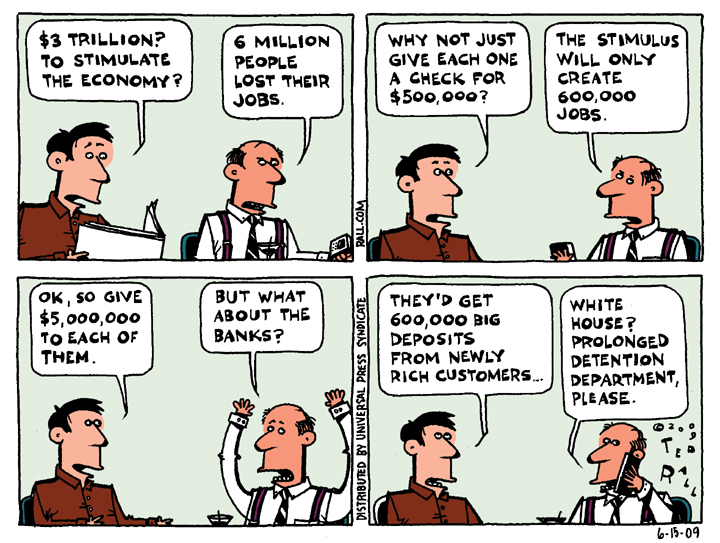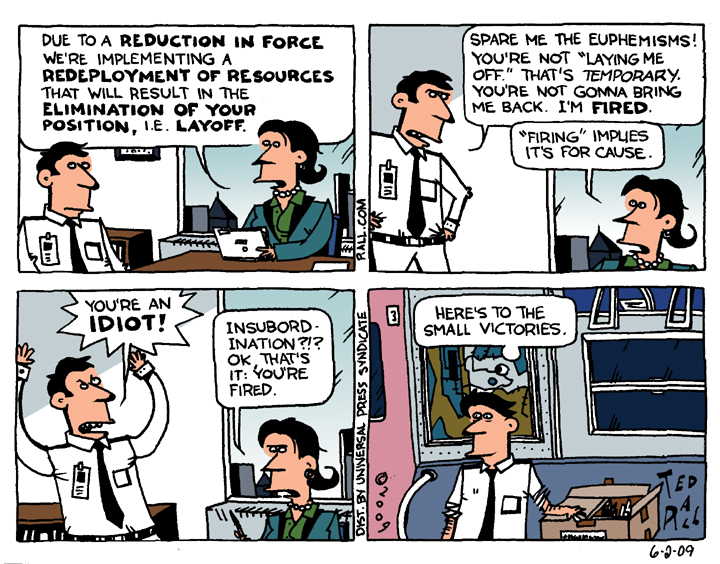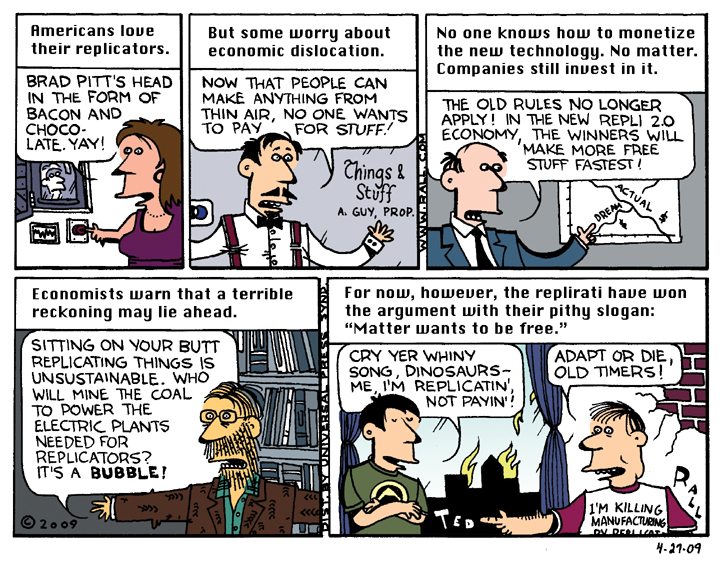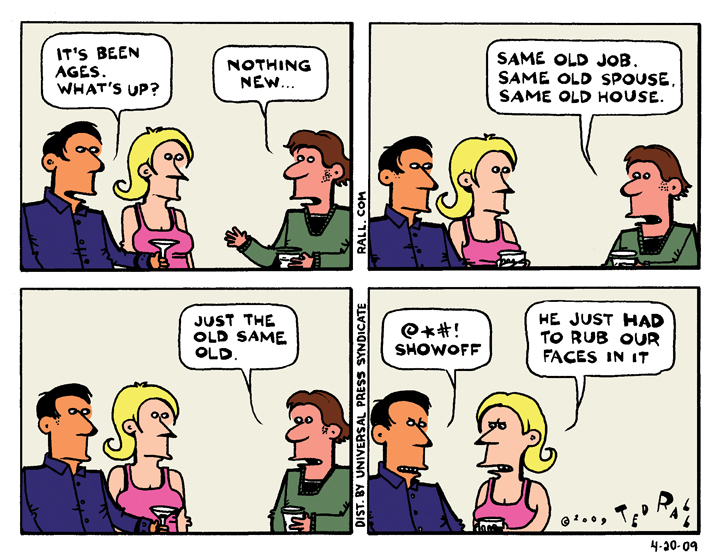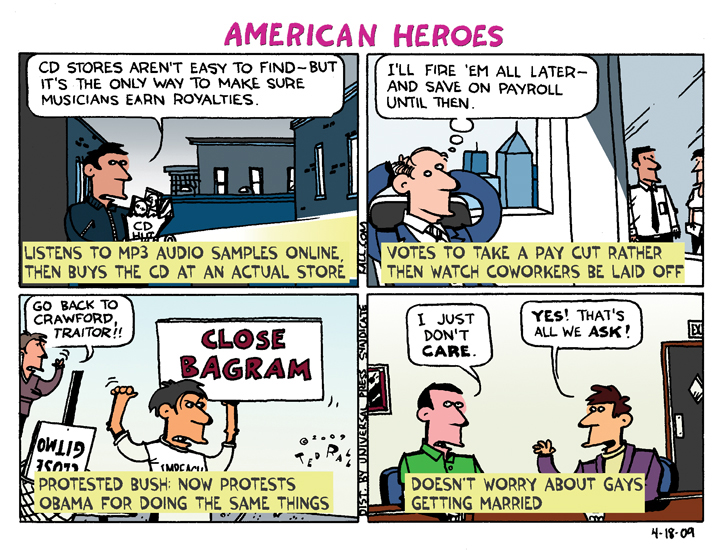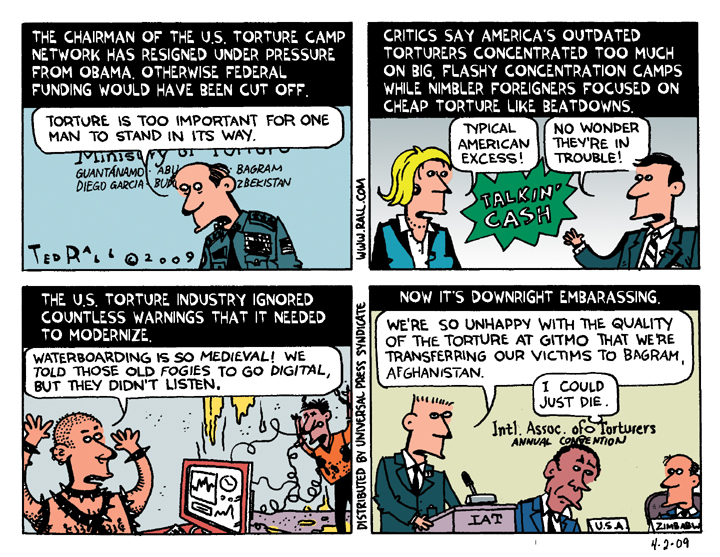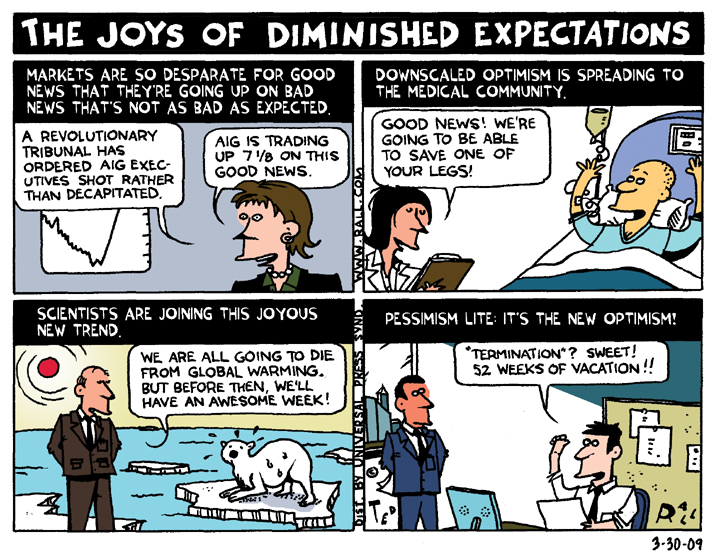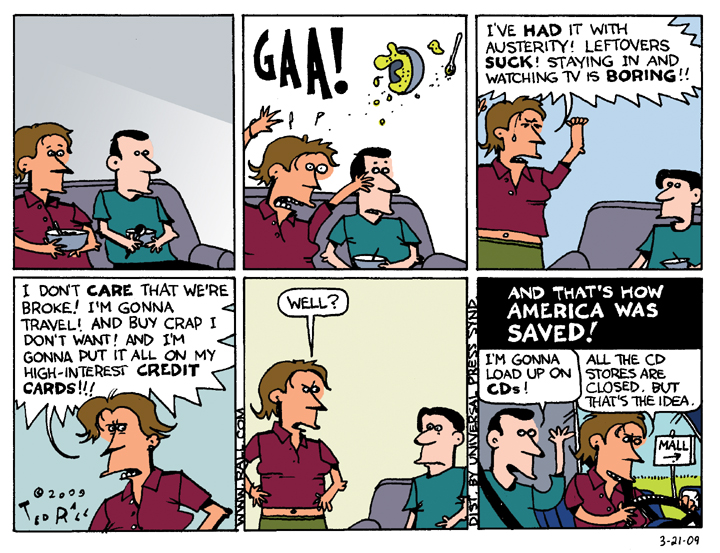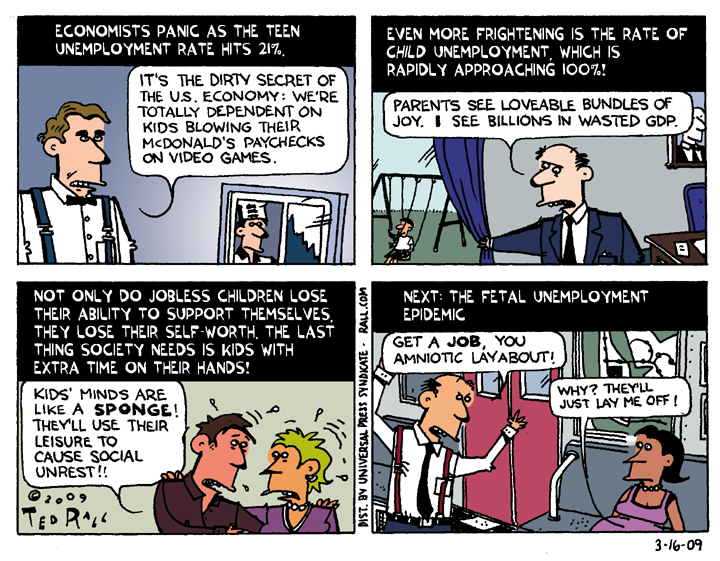It’s sick math–and it’s probably even worse than how I depicted it in this cartoon. No matter how you crunch the numbers, there is no way anyone can justify the bank bailout as anything other than a massive transfer of wealth from taxpayers to greedy corporations.
SYNDICATED COLUMN: Every Dogi Has Its Day
Americans Lose Their Savings and their Minds
When the revolution comes, the tribunal will turn to two sources to determine who should be arrested: a list of the 500 highest-paid CEOs and the Styles section of The New York Times.
Real unemployment is over 20 percent. Millions of people are losing their homes to foreclosure. We’ve been at war for eight years, with nothing to show for it but a million-plus corpses and trillions in new debt. The United States, in the midst of full-on economic collapse, is teetering on the brink of political implosion. Which has driven some people to…doga.
“Nationwide,” an article in the April 9th Times Styles section explains, “classes of doga–yoga with dogs, as it is called–are increasing in number and popularity.”
Doga. The name alone inspires lovely fantasies of firing squads. Above the piece and above the fold are photos of dogs being levitated, stretched, and used as weights. Understandably, they generally look puzzled, if not mystified. The online version has a slideshow chronicling the torment of a yellow mutt, his hind quarters being yanked into the heavens by his ever-so-serious Spandex-clad owner. Downward-facing-dog gone wild. The poor beast wears that Admiral Stockdale look: who am I? why am I here?
Why are you doing this to me?
Times reporter Bethany Lyttle, who probably never dreamed she’d end up writing this sort of thing when the thought of becoming a journalist first crossed her mind, paints a grisly tableau in but 45 horrifying words: “In Chicago, Kristyn Caliendo does forward-bends with a Jack Russell draped around her neck. In Manhattan, Grace Yang strikes a warrior pose while balancing a Shih Tzu on her thigh. And in Seattle, Chintale Stiller-Anderson practices an asana that requires side-stretching across a 52-pound vizsla.” One wonders, will she have the animal put to sleep in the event of weight change? Will she buy an entire set of dogs, to cover the weight range as her fitness improves?
During the last few months Times political writers have been wondering aloud why Americans haven’t reacted to losing their jobs and houses by rioting. Here, just a dozen ever-shrinking pages away, is the answer. They’re freaking out, all right. But being Americans, they’re freaking out weirdly.
If you’ve read this far–and I wouldn’t blame you if you’d already thrown this down in disgust–you’d might as well know what doga is. Doga!
“Doga,” reports The Times (which doesn’t run comics or advice columns because those features aren’t serious enough), “combines massage and meditation with gentle stretching for dogs and their human partners. In chaturanga, dogs sit with their front paws in the air while their human partners provide support. In an ‘upward-paw pose,’ or sun salutation, owners lift dogs onto their hind legs. In a resting pose, the person reclines, with legs slightly bent over the dog’s torso, bolster-style, to relieve pressure on the spine.”
Ready! Aim! Fire! No need for caskets. A shallow grave will suffice. But there’s more.
Skeptics of doga, by taking the idea seriously, unintentionally provide the best quotes. “Doga runs the risk of trivializing a 2,500-year-old practice into a fad,” the paper quotes a yogi in, naturally, Portland (the one in Oregon, obviously). Ya think? “To live in harmony with all beings, including dogs, is a truly yogic principle. But yoga class may not be the most appropriate way to express this.” She thinks about this stuff. Me, I’m holding out for boga–yoga with bugs.
Doga is the perfect end-of-empire moment for a nation wallowing in self-indulgence. The Romans puked out their engorged guts in their vomitoria; we drop $20 a class to drape our yowling schnauzers over our flabby tummies. And as with every great American trend of mass idiocy, controversy swirls arounds doga.
Brenda Bryan, a 43-year-old dogi and yogi (doyogi? yodogi? bowwowwowyippiyagi?) in Seattle, has written the book on doga. “It’s a new field so there can be confusion about what doga is and isn’t,” she says. Why be confused? I know what doga is. Doga is stupid.
COPYRIGHT 2009 TED RALL

